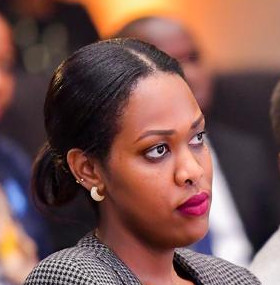

Rwanda’s economy is projected to grow by 7 percent in 2024 but decline to 6.5 percent in 2025, according to the latest regional economic outlook by the International Monetary Fund (IMF).
The fund also projects the consumer prices to average 4.9 percent this year and 5.1 percent in 2025.
Rwanda’s economic growth is projected to be the highest in Sub-Saharan Africa, after Niger at 9.9 percent in 2024.
John Rwangombwa, Governor of National Bank of Rwanda (NBR), recently announced that the country’s economy is expected to grow higher than the initial projection of 6 percent in 2024. The forecast is carried out by the National Institute of Statistics Rwanda.
ALSO READ: Inside Rwanda's plan to deliver 9.3% growth rates for next five years
Overall, the Sub‑Saharan African region is one that is seeing growth rates that are fairly steady this year, compared to last year, at about 3.6 percent, and then expected to increase to about 4.2 percent in 2025.
However, Abebe Aemro Selassie, Director of African Department, IMF, said this is not sufficient to reduce poverty or indeed to recover the lost ground in recent years, much less the developmental challenges that countries have been facing.
"The cost-of-living crisis over the last several years around the world has been particularly acute in Sub-Saharan Africa. This, of course, has intensified strains on households who spend a very large share of income relative to other regions on food, for example.”
He added that governments are also making fiscal adjustments at a time when financing remains difficult, putting quite a lot of strain on government services and the population.
The report highlighted that countries in Sub-Saharan Africa are trying to implement difficult and much-needed reforms to restore macroeconomic stability. This means that policymakers are faced with the difficult balancing act between economic stability, social pressures, and development needs.
ALSO READ: IMF revises Africa’s economic growth downward
For instance, most countries in the region have either continued to tighten policy rates or left them unchanged over the course of 2024, while some have started the easing cycle, including Rwanda, Botswana, and Mozambique.
On fiscal policy, the challenge for many countries lies in finding measures to address debt vulnerabilities and ensure sustainability, while satisfying elevated spending pressures for public services, and facing political resistance to tax increases, it added.
"Policymakers will need to design adjustment packages that remain inclusive, particularly by preserving social spending.”
The ongoing funding squeeze by lack of access to financing and high interest rates, and elevated levels of public debt, call for additional grant funding and concessional external finance, which may be the only way to facilitate growth-friendly adjustments in many countries across the region, according to IMF economic experts.


